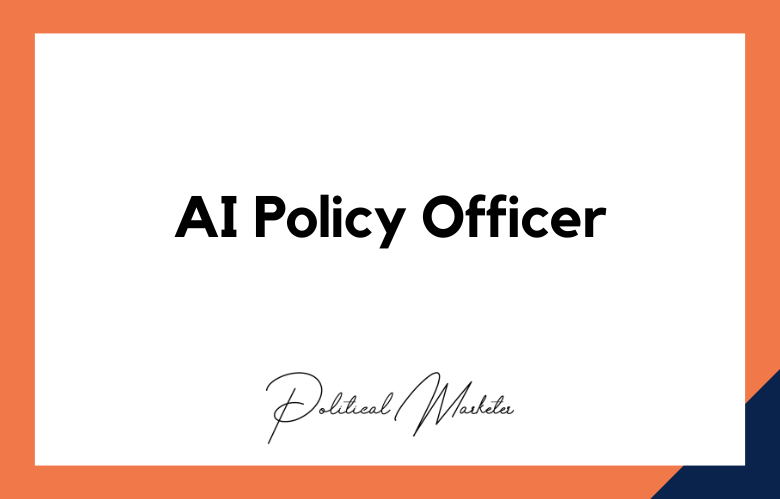Artificial intelligence (AI) has been penetrating different sectors of society, and politics is no exception. Leaders from other countries are now utilizing AI as a decision-support tool for their decisions.
This technology has significantly shifted how political leaders harness intelligence and analytics to drive results. We delve into the role of AI in political decision-making and explore the potential benefits and challenges of using this technology as a tool for governance.
AI as a Decision Support Tool for Political Leaders
AI and Data Analysis
AI relies heavily on facts and data to make informed decisions. For political leaders, AI can help analyze tons of data from social media, public sites, and other sources. Analyzing the data can help them filter out misleading content, identify trends and patterns, and predict potential threats.
Politicians can collect more accurate information and make better-informed decisions based on reliable data with AI. This way, the leaders can stay ahead of the curve and make decisions that benefit their constituents.
Enhanced Efficiency
With the massive amount of data politicians must keep up with, it is easy to miss essential information. AI can help augment politicians’ information intake and provide more in-depth analysis of different types of information. The technology can process data faster than humans, making it incredibly efficient. With AI supporting their decision-making process, politicians can redirect attention to more critical matters affecting their constituents.
Transparency and Accountability
Incorporating AI in political decision-making ensures transparency, accountability, and predictability. AI can look for errors and biases in reports and proposals and eliminate the potential for a lack of transparency that traditional politics have been accused of. This technology can present all relevant data used in decision-making, allowing politicians and the involved parties to track how the decision arrived.
Ethical Concerns and Future Aspects for AI in Politics
However, technology integration has ethical concerns, such as accountability and exclusion. If AI is used exclusively, it removes human reasoning from the decision-making process. Also, if the technology design is flawed, it may cause significant bias in the decision-making process.
The ethical concerns surrounding AI as a political decision-making tool are expanding daily. However, as technology evolves, we will see more ethical, secure ways to use it ethically to facilitate better governance.
The Rise of AI: Revolutionizing Decision-making for Political Leaders
The advent of Artificial Intelligence (AI) is fast gaining ground in almost every facet of human existence, including the political sphere. Political leaders are now leveraging AI technology to revolutionize decision-making processes. AI is a transformative technology that enables political leaders to analyze data from diverse sources, extract insights, and make informed decisions that are accurate and faster.
One of the key benefits of AI for political leaders is the ability to analyze massive amounts of data in real time. With AI-powered tools, political leaders can process enormous amounts of data from various sources, including social media platforms, news outlets, and government databases.
The ability to analyze these data sets gives political leaders a more comprehensive understanding of the issues they are dealing with, giving them the ability to make more informed decisions.
Innovative Governance: AI as an Ally for Political Decision-making
Smart Governance has gained significant attention in recent years, with political entities looking towards implementing artificial intelligence (AI) as an ally in decision-making processes. The application of AI in governance can potentially revolutionize how decisions are made, and policies are formulated, leading to more efficient and effective results.
One of the main benefits of AI in political decision-making is the ability to enhance the speed and accuracy of data analysis. Large datasets can be analyzed and interpreted more quickly and accurately using AI algorithms, providing valuable insights to inform policy decisions. AI can also identify potential risk factors or emerging trends, allowing for proactive measures to be taken.
Navigating the Political Landscape: AI’s Role in Decision Support
Artificial Intelligence (AI) has become an increasingly vital tool in diverse industries, particularly decision support systems. This tool, which uses machine learning algorithms, has various applications in the political landscape. In political settings, decision-makers are faced with complex problems, and AI provides a much-needed solution that aids in facilitating the decision-making process. It has, therefore, become evident that the role of AI in decision support in the political landscape cannot be underestimated.
One of the methods used in the political sphere is predictive analytics. Predictive analytics entails the analysis of vast data sets to determine patterns and trends in the data, thereby predicting future events. For instance, predictive analytics can be applied in politics to determine voting patterns and trends during campaigns.
The use of AI in predictive analytics has positively impacted the accuracy of election predictions. In the 2016 U.S. Presidential election, AI technology companies such as Google correctly predicted the outcome of the polls.
AI-Powered Politics: Enhancing Leadership with Decision Support Tools
Understanding AI-Powered Politics
AI-powered politics uses artificial intelligence (AI) and decision-support tools in the political realm. These technologies can assist leaders in making more informed decisions by analyzing vast amounts of data and providing insights and recommendations.
Improved Decision-Making
One of the main benefits of AI-powered politics is improved decision-making. By utilizing advanced algorithms and machine learning, these tools can process large amounts of complex data and provide leaders with valuable insights that may have been overlooked or missed.
Enhancing Efficiency
In addition to improving decision-making, AI-powered politics can also enhance efficiency in the political realm. With the ability to analyze data quickly and accurately, leaders can save time and resources when making important decisions.
Identifying Patterns and Trends
Another advantage of using AI in politics is its ability to identify patterns and trends in data that may not be apparent to human analysts. This can help leaders make more strategic decisions based on a deeper understanding of current events and potential future outcomes.
Reducing Bias
AI-powered decision support tools are designed to be unbiased, which can be beneficial in reducing bias in political decision-making processes. By relying on data-driven insights rather than personal opinions or beliefs, leaders can make more objective decisions for the greater good.
Predicting Outcomes
Through predictive analytics, AI-powered politics can also assist leaders in predicting potential outcomes of various policies or actions. This allows for proactive planning and risk assessment before implementing any changes.
Real-Time Monitoring
With AI, leaders can also monitor real-time data on various issues, such as public opinion, economic indicators, or social media trends. This information can inform decision-making and allow for quick adjustments if necessary.
Personalization
AI-powered politics also has the potential to personalize communication with constituents by analyzing individual preferences and tailoring messages accordingly. This could lead to more effective communication and engagement with the public.
Collaborative Decision-Making
Decision support tools can also facilitate collaborative decision-making among leaders by providing a centralized platform for data analysis and discussion. This can lead to more efficient and effective decision-making processes.
Ethical Considerations
As with any use of AI, there are ethical considerations that must be taken into account in AI-powered politics. Leaders must ensure these tools are used responsibly and ethically, considering potential biases or privacy concerns.
Final Thoughts
AI can provide valuable insights when utilized in political decision-making. Still, as with any powerful tool, it should be used to complement and not replace human judgment.
As long as policymakers and data scientists can collaborate on the best practices for using AI, it has the potential to revolutionize how politics is carried out. Properly managed, AI can deliver more efficient, transparent, and equitable governance to the benefit of citizens in countries worldwide.
Decoding the Data: How AI Empowers Political Leaders
Over the past few years, Artificial Intelligence (AI) has emerged as a cutting-edge technology that can potentially transform various industries, including politics. By analyzing large volumes of data and extracting patterns, AI can give political leaders vital insights into their constituents’ thoughts, feelings, and opinions. This process of analyzing, interpreting, and utilizing data is often referred to as “decoding” the data.
One of the key ways AI empowers political leaders is by helping them understand their constituents better. With AI, politicians can analyze social media data to identify critical trends and topics of discussion. They can use this information to tailor their speeches, policies, and campaigns to the issues that matter most to their constituents.
From Insights to Actions: AI as a Decision-making Aid for Politicians
The widespread adoption of Artificial Intelligence (AI) in various industries has significantly impacted politics. With the increasing complexity of political and social issues, AI has become a handy tool for decision-making and policy implementation. It can provide insights to politicians by analyzing data from various sources and presenting them more comprehensively.
Politicians can better understand their constituents’ needs and concerns by utilizing AI to analyze and understand the data gathered from online conversations, social media, and other sources. Furthermore, machine learning algorithms can enable politicians to detect patterns and trends in the data that may be hidden from human perception. This can help them to formulate more strategic policies and actions, resulting in a more effective response to societal demands.
Conclusion:
AI applied in politics would bring enormous benefits and significant ethical challenges. This means countries must have ethical, legal, and regulatory frameworks. The benefits of AI in decision-making are unquestionable.
Still, these gains must be balanced against the ethical considerations and potential for unilateral decision-making. To get the best out of AI, political leaders must consider and balance the technology’s benefits and the ethical concerns surrounding its use.
Call: +91 9848321284
Email: [email protected]
AI as a Decision Support Tool for Political Leaders: FAQs
What Is AI As A Decision Support Tool In Politics?
AI as a decision support tool refers to using artificial intelligence systems to help political leaders make informed decisions by analyzing data, predicting outcomes, and providing strategic insights.
How Can AI Assist Political Leaders In Strategic Planning?
AI can process vast datasets to identify trends, model policy impacts, and simulate different governance scenarios for evidence-based decision-making.
Why Is AI Useful In Political Decision-Making?
AI reduces cognitive overload, uncovers hidden patterns, enhances forecasting accuracy, and helps leaders act quickly with data-backed confidence.
What Types Of Data Can AI Analyze For Political Use?
AI can analyze voter sentiment, demographic trends, social media conversations, economic indicators, and historical electoral data.
How Can AI Improve Crisis Management For Politicians?
AI can offer real-time monitoring, predictive analytics, and scenario simulations to help leaders respond rapidly to emerging political, social, or environmental crises.
Can AI Predict Public Opinion Accurately?
Yes, with access to quality data, AI models can accurately predict public opinion trends, issue salience, and electoral shifts.
What Are The Limitations Of AI In Political Decision-Making?
Limitations include data bias, ethical concerns, overreliance on algorithms, lack of transparency, and potential misuse for political manipulation.
How Is AI Used In Policy Development?
AI models can simulate policy outcomes, assess feasibility, and compare alternative solutions to help leaders select the most effective action.
Can AI Help In Understanding Constituency-Level Issues?
AI tools can map local issues, aggregate complaints, and track community sentiment from various data sources to support localized decision-making.
What Role Does Natural Language Processing (NLP) Play In Politics?
NLP enables analysis of public discourse, legislative texts, citizen feedback, and social media to extract key insights for policymaking.
Is AI Being Used In Election Campaign Decisions?
Yes, AI is widely used in voter targeting, message testing, turnout prediction, and campaign strategy optimization.
Can AI Tools Assist In Resource Allocation For Governance?
Absolutely. AI can identify high-need areas, optimize budget allocations, and support evidence-based governance at scale.
How Does AI Contribute To Legislative Efficiency?
AI helps in bill summarization, legal analysis, tracking amendments, and identifying duplication or gaps in policy proposals.
Are There Any Real-World Examples Of AI In Political Leadership?
Governments and parties worldwide use AI for polling, predictive governance, public engagement, and misinformation monitoring.
Can AI Improve Transparency And Accountability In Politics?
When used ethically, AI can make traceable decisions, provide surface insights from open data, and support fact-checking and anti-corruption efforts.
What Are The Ethical Concerns Of Using AI In Political Decision-Making?
Concerns include algorithmic bias, lack of explainability, misuse of surveillance data, and the potential erosion of human oversight.
How Can Political Leaders Ensure Responsible Use Of AI?
Implementing ethical AI frameworks, conducting audits, ensuring data transparency, and involving human oversight in all decision processes.
Should Political Staff Be Trained To Use AI Tools?
Training enables staff to interpret AI outputs accurately, avoid blind reliance, and integrate insights into broader political strategies.
What Is The Future Of AI In Political Decision-Making?
The future includes more personalized policymaking, real-time governance analytics, and integration of AI into institutional decision-making systems.
How Can AI Support Public Engagement In Policy Discussions?
AI can summarize citizen feedback, detect real-time concerns, and tailor public communication to enhance participatory governance.










